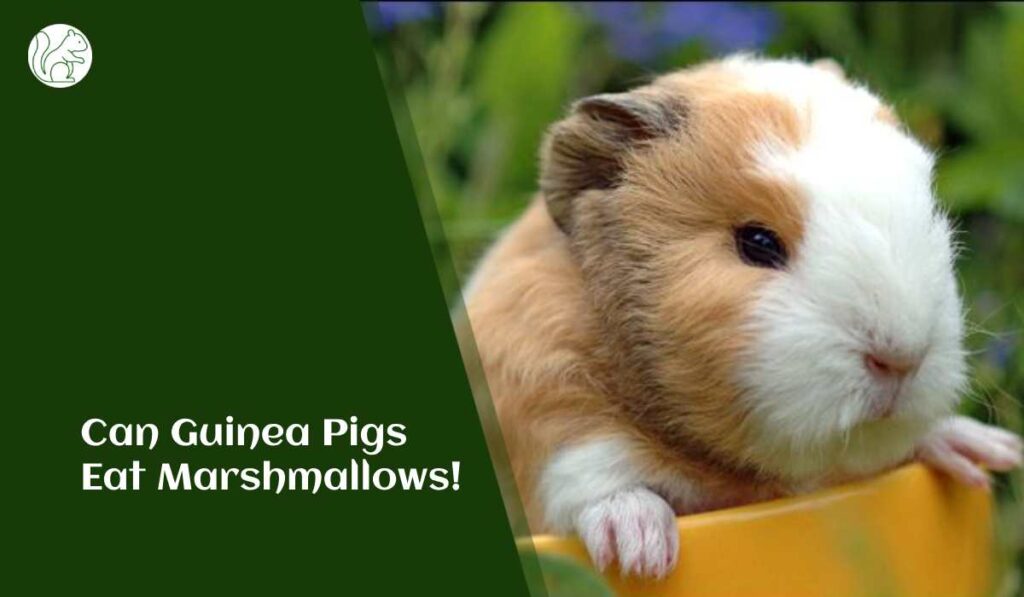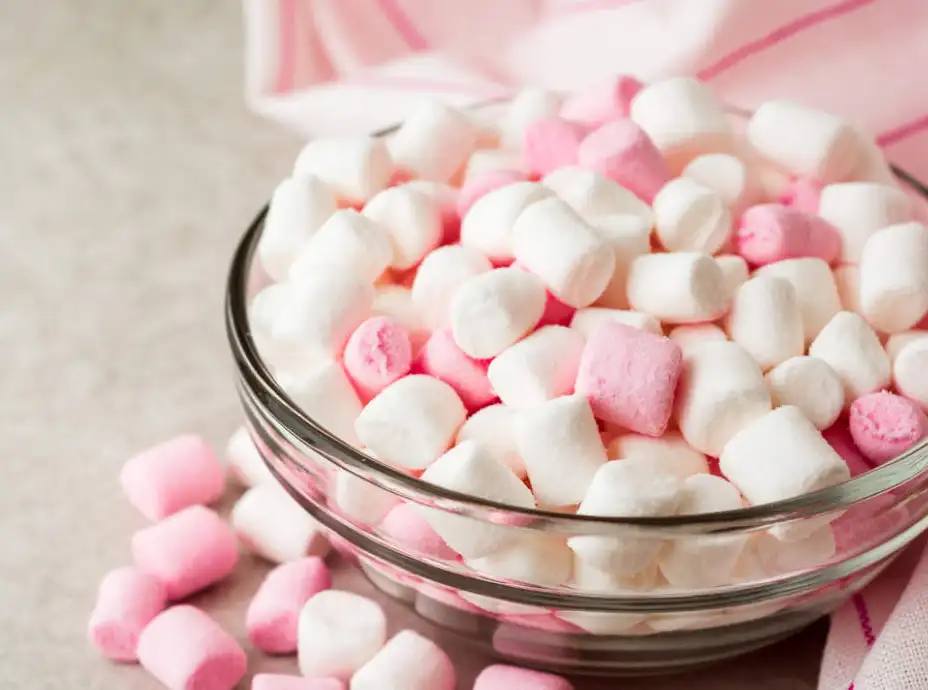Guinea pigs are adorable and sociable pets that bring joy to many households. As responsible pet owners, it’s crucial to ensure that our furry friends are fed a balanced and healthy diet. While it’s tempting to share our favorite treats with them, it’s essential to understand which foods are safe for guinea pigs to consume. In this article, we will answer the question, “Can guinea pigs eat marshmallows?” and provide you with valuable insights into the dietary needs of these small rodents.

Understanding the Guinea Pig’s Diet
Before we delve into the topic of marshmallows, let’s first discuss the typical diet of a guinea pig. These herbivorous animals thrive on a diet that consists primarily of fresh hay, high-quality guinea pig pellets, and a variety of fresh vegetables and fruits. Their digestive systems are designed to process fibrous foods efficiently.
The Nutritional Requirements of Guinea Pigs
Guinea pigs have specific nutritional needs to support their overall health and well-being. They require a diet rich in Vitamin C, fiber, and a moderate amount of protein. Fresh hay, such as timothy hay, should be available at all times to ensure proper digestion and dental health. Guinea pig pellets formulated specifically for their dietary requirements should make up the bulk of their daily food intake.
Can Guinea Pigs Eat Marshmallows?
Now let’s address the question at hand: Can guinea pigs eat marshmallows? While it might be tempting to offer your guinea pig a tiny, fluffy treat, it’s important to remember that marshmallows are not a part of their natural diet. Marshmallows are primarily made of sugar, corn syrup, gelatin, and artificial flavorings, none of which provide any nutritional value to guinea pigs.
Feeding marshmallows to guinea pigs can lead to various health issues. The high sugar content in marshmallows can cause digestive problems, obesity, tooth decay, and even diabetes in guinea pigs. Their sensitive digestive systems are not designed to handle processed and sugary foods. Additionally, the artificial flavorings and additives in marshmallows can be harmful to their overall health.
Healthy Alternatives to Marshmallows
Instead of marshmallows, there are plenty of safe and healthy treats that you can offer your guinea pig. Here are a few alternatives that your furry friend will love:
- Fresh Vegetables: Guinea pigs enjoy a variety of vegetables, such as carrots, bell peppers, cucumbers, and leafy greens like spinach and romaine lettuce. These provide essential vitamins and minerals.
- Fresh Fruits: Guinea pigs can have small amounts of fruits like apples, strawberries, and blueberries. Remember to remove any seeds or pits and introduce new fruits gradually.
- Timothy Hay-based Treats: Look for commercially available treats made from timothy hay, which provide both mental stimulation and nutrition for your guinea pig.
Optimal Treats for Guinea Pigs
Although marshmallows are not a suitable treat for guinea pigs, there are plenty of other options that can be safely incorporated into their diet. As an alternative, you can offer your guinea pig small amounts of fresh fruits like apples, strawberries, or blueberries. Remember to introduce new treats gradually to prevent any potential digestive upset.

It’s important to note that treats should only make up a small portion of a guinea pig’s diet. The majority of their nutrition should come from hay, pellets, and fresh vegetables. Always prioritize their dietary needs over indulging them in treats.
Conclusion
In conclusion, it’s best to avoid feeding marshmallows to your guinea pig. While they may seem harmless and delicious to us, marshmallows offer no nutritional benefits and can potentially harm your pet’s health. Stick to a well-balanced diet consisting of fresh hay, guinea pig pellets, and appropriate portions of fresh vegetables and fruits. By providing your guinea pig with a wholesome diet, you ensure their long-term health and happiness.
Remember, when it comes to the well-being of our furry friends, their dietary needs should always take priority. If you have any doubts about what foods are safe for your guinea pig, consult with a veterinarian who specializes in small animals. They can provide you with the best guidance and ensure that your guinea pig’s diet is optimized for their specific needs.
